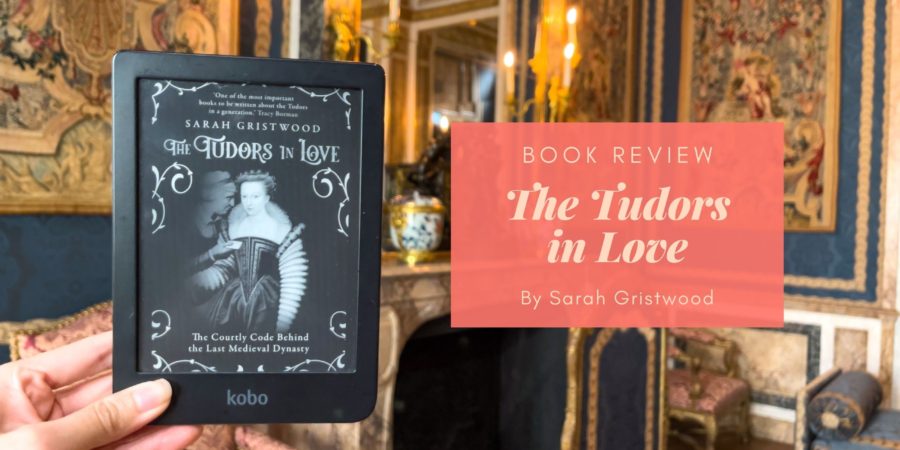I first heard about The Tudors in Love when Sarah Gristwood went on the Medievalist podcast. The book intrigued me, so I decided to check it out!
As you can guess from the title, The Tudors in Love is about love and the Tudors. To be specific, it’s about how the concept of courtly love affected the Tudor dynasty, from the relationship between Anne Boleyn and Henry VIII to the way Elizabeth I used and subverted its tropes to reign alone. The book is divided into six parts – Part 1 introduces the concept and the history of courtly love, and part 2 to 6 covers the years 1485 to 1603 and how we can use the lens of courtly love to analyse what happened.
The idea of Courtly Love can be traced back as far as the 12th century and is a response to the times in which it was born. The book spends a few pages trying to define it (as a counterpart to the cult of the Virgin Mary, or from the Cathar or Albigensian heresy), but I think the simplest way to understand it is as “a social ritual, a collection fantasy; a game”. It’s a way the Tudors thought of romantic relationships and was a way that they used to navigate the world – you could play this game to your advantage, but it could also destroy you. Of course, Anne Boleyn is probably the most famous player of this game, winning the prize of “Queen” but also losing her head, and it’s no surprise that the book spends a lot of time on her. After Anne, women who are given a lot of page space in the book are Queen Guinevere and Elizabeth I.
One of the most interesting ideas that the book brings up is the enduring impact of courtly love, such as the creation of “a system of romance that seemed to be validating a woman’s right to her own physical integrity would in the end wind up normalising a ‘token’ resistance – eventually to be overcome – as part of the courtship game.” When I read this sentence, I immediately thought of Pride & Prejudice, and how Mr Collins was convinced that Elizabeth’s denial of his proposal because, as he says “I know it to be the established custom of your sex to reject a man on the first application, and perhaps you have even now said as much to encourage my suit as would be consistent with the true delicacy of the female character.” This was about a hundred years after the Tudors, but I think that the same trope can be seen in rom-coms and other modern stories.
And because of this, it probably won’t surprise you that the concept of courtly love didn’t do much for position of women in society. As Gristwood writes:
“Their [women’s] exaltation in the literature of courtly love led to no actual, direct improvement in women’s lot; legally, economically or physically. The men who listened complacently to these stories seem to have felt no impulse to translate their moral into an inconvenient actuality.”
Seen this way, Elizabeth I’s subversion and use of the tropes of courtly love during her reign is very impressive and even though her actions led to the end of the Tudor dynasty, it also helped her avoid a marriage she didn’t one and in this sense, her manipulation of the tropes of courtly love was a success.
I’d definitely recommend this book!

This sounds interesting. I don’t know much about this time period and I haven’t come across books about Tudors as well. Great review!
I’ve read a bit about Henry VIII and Anne Boleyn but I feel like I don’t know much either :p
The title of this made me think it was going to be a romance, and instead I’ve found another book that sounds super interesting!!
Haha I’m not a huge fan of romance so if it sounds like romance… it probably is something else :p